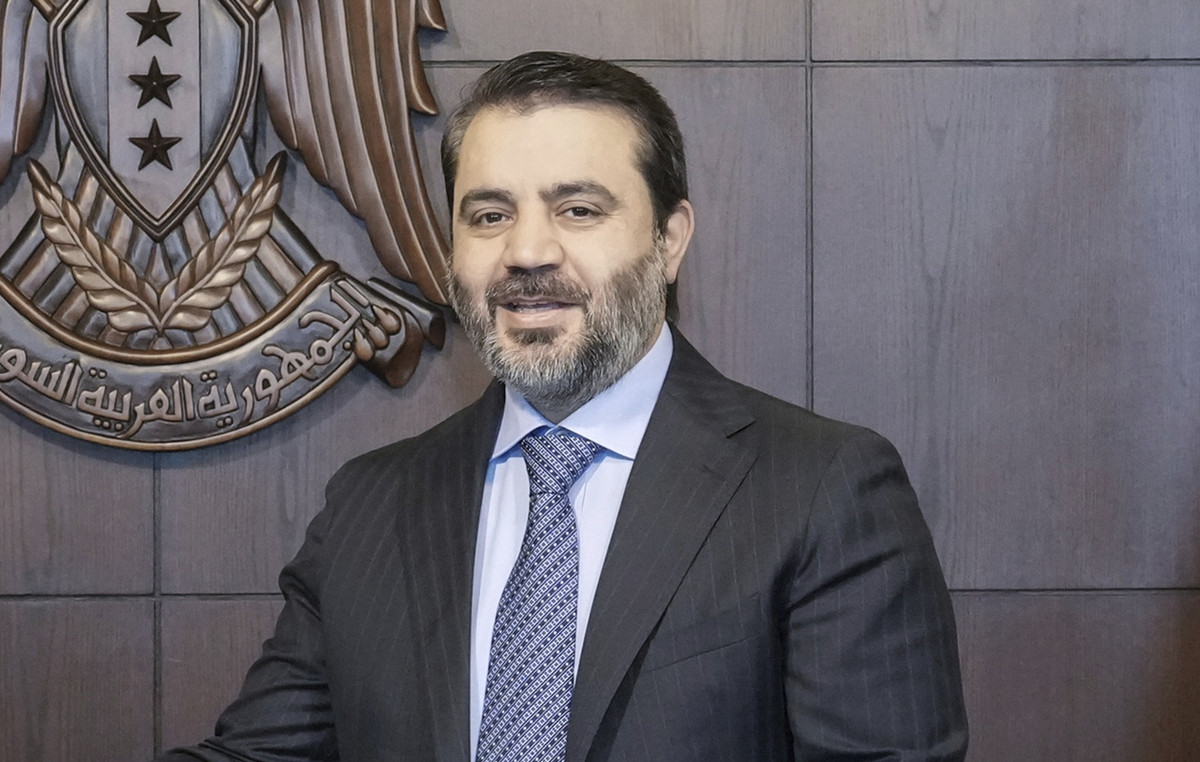Russian President Vladimir Putin's government change over the weekend appears to be a triumph of competence over loyalty.
The Kremlin leader replaced his camping and fishing companion and head of the country's Defense Ministry with someone widely seen as a competent technocrat.
That, at least, appears to be the immediate conclusion after the Kremlin announced that Andrey Belousov, a civilian economist and former first deputy prime minister, would take over the top job in the Russian Defense Ministry from Sergei Shoigu, who has held the post since 2012.
Alexandra Prokopenko, a former adviser to the Central Bank of Russia, attributed the change to the growing intrinsic relationship between the war and the Russian economy.

“Putin’s priority is war; the war of attrition is won by the economy”, wrote Prokopenko in a thread on X (formerly Twitter).
“Belousov is in favor of stimulating demand from the budget, which means that military spending will at least not decrease, but rather increase,” he added.
Such a move makes sense when one sees the war in Ukraine as a contest between Western defense manufacturers, which supply Ukraine with ammunition and military equipment, and those of Russia.
US and NATO officials already admit that Russia is massively outperforming the West when it comes to artillery ammunition production: NATO intelligence estimates on Russian defense production shared with the CNN indicate that Russia produces about three times more artillery shells per year than the US and Europe for Ukraine.
Having a competent economic manager at the top of the Defense Ministry could be an advantage for Putin, especially as the US Congress finally opens the taps for more military aid to Ukraine and as Russia presses forward with a new advance along Ukraine's northeastern border. .
It is not yet clear whether this advance represents a new front for Russia or an effort to divert Ukrainian forces, but it puts more pressure on Kiev as its allies rush to hand over more weaponry.
Belousov's appointment could also represent a housecleaning at the Defense Ministry. In recent weeks, the ministry has been hit by a corruption scandal that led to the dismissal and arrest of a former Shoigu deputy.
Music chairs
Prokopenko, who is one of the most astute observers of the Russian economy, described Belousov as “well-versed in issues of the military-industrial complex” in his X thread, adding that he “embodies Stolypin-style statesmanship,” a reference to reformist Prime Minister Pyotr Stolypin, who led an effort to overhaul and modernize Russia's inefficient economy after its humiliating military defeat by Japan in 1905.
But the reality may be more complex.
Putin laterally moved Shoigu to the post of secretary of Russia's Security Council, meaning Shoigu is not completely out of the picture.

Discussing Shoigu's new appointment, Kremlin spokesman Dmitry Peskov said the former defense minister would remain immersed in military production issues.
But competent management of the wartime economy is now critical: Peskov noted that defense spending is approaching 7% of Russian GDP, close to the level seen in the Soviet Union in the mid-1980s, when military priorities and central planning strangled the consumer economy and stifled technological innovation.
“Today, on the battlefield, the winner is the one who is most open to innovation,” Peskov said in a conference call with reporters on Sunday.
“And therefore it is natural that at the current stage the president decided that the Russian Defense Ministry should be headed by a civilian.”
The appointment of a civilian to the Ministry of Defense does not, therefore, signal a less aggressive approach to the war in Ukraine.
General Valery Gerasimov, Russia's chief of staff and one of the architects of the full-scale invasion of Ukraine, remains in office.
The upper echelons of power remain committed to Putin's brand of personalistic government – and to Putin's goal of subjugating Ukraine.
However, the latest government change suggests a potential future power struggle among the Russian elite.
With Shoigu's new appointment, Nikolai Patrushev, the previous secretary of the Security Council, was removed from his post and is awaiting “transfer to another position,” according to Peskov.

Patrushev represents a class known as siloviki – the men of power who rose from the ranks of the Soviet security services.
The former head of the Federal Security Service, or FSB, Patrushev has been one of the most hardline members of Putin's inner circle.
And the Patrushev family name has frequently cropped up in speculation about who might be next in line to the throne after Putin's death — because as the Russian president begins a fifth term, money ensures he remains president for life.
Putin has no clear successor (if he dies or becomes incapacitated while in office, his duties will be taken over temporarily by Prime Minister Mikhail Mishustin), but Kremlin watchers maintain a running list of potential successor hopefuls.
Dmitry Patrushev, son of the former head of the security council, is sometimes described as one of the “princes” in waiting; young Patrushev has just been appointed deputy prime minister in the latest reshuffle.
Despite the changes at the top, there is no sense that the Kremlin's overall goals – pursuing the war against Ukraine and continuing the confrontation with the West – have changed.
“Putin's main goal is to increase the state's ability to support military needs more effectively, while most elements of the existing 'structure' will remain intact,” wrote political observer Tatiana Stanovaya, founder and CEO of the analytical group R .Politik.
So the music may be playing faster inside the Kremlin, but the usual loyal competitors are still playing musical chairs.
Source: CNN Brasil
Bruce Belcher is a seasoned author with over 5 years of experience in world news. He writes for online news websites and provides in-depth analysis on the world stock market. Bruce is known for his insightful perspectives and commitment to keeping the public informed.







